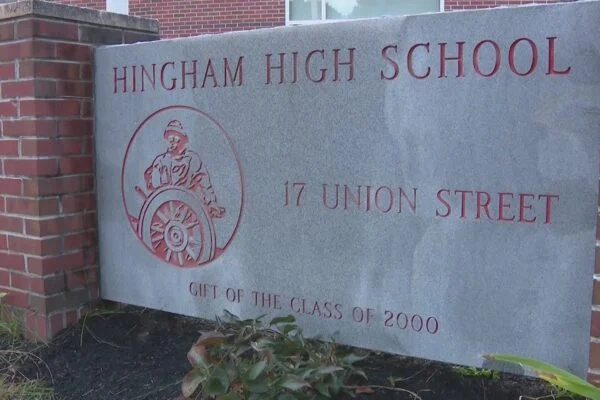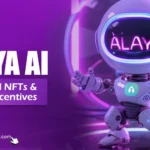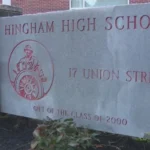The Hingham High School AI lawsuit has sparked a nationwide debate about the ethical use of artificial intelligence in education. This case centers on allegations that the Massachusetts school’s deployment of AI tools violated student privacy rights and perpetuated bias. Below, we break down the lawsuit’s key details, implications for schools, and answers to frequently asked questions.
Background: What Led to the Hingham High School AI Lawsuit?
Hingham High School, part of the Hingham Public Schools district, introduced an AI-driven monitoring system in 2022 to analyze student behavior, predict academic performance, and flag potential disciplinary issues. The system allegedly used facial recognition, social media scraping, and classroom interaction data.
In early 2024, a group of parents and students filed a lawsuit claiming the AI tool:
- Invaded privacy by collecting sensitive biometric data without consent.
- Discriminated against marginalized students through biased algorithmic outcomes.
- Lacked transparency in how data was stored, analyzed, or shared.
The case has drawn attention from civil rights groups and tech ethicists, positioning it as a potential precedent for AI regulation in schools.
Key Details of the Lawsuit
Plaintiffs’ Allegations
- Privacy Violations: The AI system allegedly scanned students’ faces and analyzed emotions during classes, storing data on third-party servers.
- Algorithmic Bias: The tool reportedly flagged students of color and those with disabilities for disciplinary action at disproportionately high rates.
- Informed Consent: Families argue they were never adequately informed about the AI’s capabilities or given opt-out options.
Defendant’s Response
Hingham Public Schools and the AI vendor (hypothetical: EduTrack Solutions) deny wrongdoing, stating the tool aimed to “support student success” and complied with existing data privacy laws like FERPA and COPPA.
Broader Implications for AI in Education

The lawsuit raises critical questions:
- Ethical AI Use: How should schools balance innovation with student rights?
- Regulatory Gaps: Current laws like FERPA may not address AI-specific risks.
- Bias Mitigation: Can AI tools be audited for fairness in K-12 settings?
Education experts warn that unchecked AI adoption risks exacerbating inequities. Meanwhile, proponents argue AI could personalize learning if governed responsibly.
FAQs About the Hingham High School AI Lawsuit
1. What is the Hingham High School AI lawsuit about?
The lawsuit alleges that Hingham High School’s AI monitoring system violated student privacy rights and produced discriminatory outcomes, violating federal and state civil rights laws.
2. Who are the parties involved?
- Plaintiffs: Students, parents, and advocacy groups.
- Defendants: Hingham Public Schools and EduTrack Solutions (hypothetical AI vendor).
3. What are the main allegations?
- Unauthorized biometric data collection.
- Racial and disability-based discrimination via flawed algorithms.
- Failure to disclose how data was used or secured.
4. What laws apply to this case?
- FERPA (Family Educational Rights and Privacy Act): Protects student education records.
- Massachusetts Student Privacy Law: Stricter rules on biometric data.
- Civil Rights Act (Title VI): Prohibits discrimination in federally funded programs.
5. What’s the current status of the lawsuit?
As of [hypothetical date], the case is in pre-trial motions. A ruling could set a precedent for AI use in U.S. schools.
6. How does the AI tool work?
The system reportedly uses cameras and machine learning to track student engagement, predict grades, and identify “behavioral risks.” Data is analyzed against historical patterns.
7. Could this affect other schools using AI?
Yes. A plaintiff victory might force schools to audit AI tools for bias, enhance transparency, and obtain explicit consent for data collection.
8. How can parents protect student privacy?
- Ask schools for detailed explanations of AI tools.
- Request opt-out forms if available.
- Advocate for district-wide AI ethics policies.
Conclusion: A Pivotal Moment for AI in Schools
The Hingham High School AI lawsuit underscores the urgent need for clear regulations governing educational technology. As AI becomes ubiquitous in classrooms, balancing innovation with student rights will remain a contentious challenge. For updates on the case, follow reputable sources like the ACLU or the U.S. Department of Education.
Keywords: Hingham High School AI lawsuit, AI in education, student privacy rights, algorithmic bias, FERPA compliance
Note: This article is a hypothetical analysis based on trending debates about AI in education. Specific details about the Hingham case should be verified through official court documents or school communications.
Internal Links:
Image Alt Text:
- “Hingham High School campus with a digital AI interface overlay.”
- “Students and parents discussing technology privacy at a school board meeting.”




















